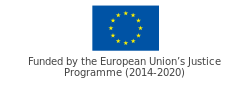
Microsite ProCam
Introduction
The earliest stages of criminal procedures frequently determine the overall fairness of proceedings. During the pre-trial interrogation of vulnerable suspects or accused persons key evidence is often obtained and the admissibility of this evidence can determine the ultimate outcome of the case.
There is a growing recognition of the need for vulnerable suspects to be accorded special safeguards at the interrogation stage to ensure their fair treatment and effective participation, as expressed by the Commission Recommendation C(2013) 8178/2 (S3§13).
Although there is a slow move in the direction of increased audiovisual recording of the interrogation of vulnerable suspects or accused persons, the picture across Europe is patchy. A number of states resist the introduction of recording for a range of reasons, including cost, technical challenges and ensuring privacy.
The project ‘ProCam - Procedural Rights Observed by the Camera: Audiovisual Recordings of Interrogations in the EU’, supported by the Justice Programme of the European Union, aims to research the connection between the audiovisual recording of any questioning of vulnerable persons and the enforcement of their rights, as advised in the Commission Recommendation.
The project will research the role of audio-visual recording in securing the rights granted in Directive 2013/48, alongside facilitating EU-wide identification of good practices of recording interrogation of vulnerable persons, and the understanding of related concerns.
The project remit covers analysing international standards, researching practices in the 28 EU Member States, exchanging experiences between national stakeholders, comparing Member State laws and practices, proposing reform to reinforce good practices, and disseminating project findings at the European Parliament.
